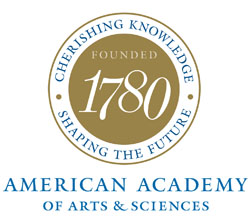NEW BRUNSWICK, N.J. – Rutgers University physics professors Gregory Moore and Thomas Banks have been elected to membership in the American Academy of Arts and Sciences, one of the nation’s most prestigious honorary societies and a leading center for independent policy research.
Both specialize in string theory, a branch of physics that aims to provide a unified understanding of the basic forces and fundamental particles in nature. These include gravity, electromagnetism and forces responsible for the stability and decay of atomic nuclei. They are members of the Rutgers New High Energy Theory Center, an internationally recognized group in the development and exploration of string theory.

Moore’s research encompasses mathematical physics, with an emphasis on string theory, M-theory, and gauge theories. Banks works on theoretical elementary particle physics, cosmology and superstring/M-theory.
They are among 212 scholars, scientists, writers, artists, civic, corporate and philanthropic leaders selected to join the academy this year. Members contribute to academy studies of science and technology policy, global security, social policy and American institutions, the humanities, and education.
“It is a privilege to honor these men and women for their extraordinary individual accomplishments,” said Leslie Berlowitz, academy president and William T. Golden Chair. “The knowledge and expertise of our members give the academy a unique capacity – and responsibility – to provide practical policy solutions to the pressing challenges of the day. We look forward to engaging our new members in this work.”
With these two new appointments, 18 Rutgers faculty are members of the academy. The new class will be inducted at a ceremony on Oct. 1 at the academy's headquarters in Cambridge, Mass.
Since its founding in 1780 by John Adams, James Bowdoin, John Hancock and other scholar-patriots, the academy has elected leading “thinkers and doers” from each generation, including George Washington and Benjamin Franklin in the 18th century, Daniel Webster and Ralph Waldo Emerson in the 19th, and Albert Einstein and Winston Churchill in the 20th. The current membership includes more than 250 Nobel Laureates and more than 60 Pulitzer Prize winners.
Media Contact: Carl Blesch
732-932-7084 x616
E-mail: cblesch@ur.rutgers.edu